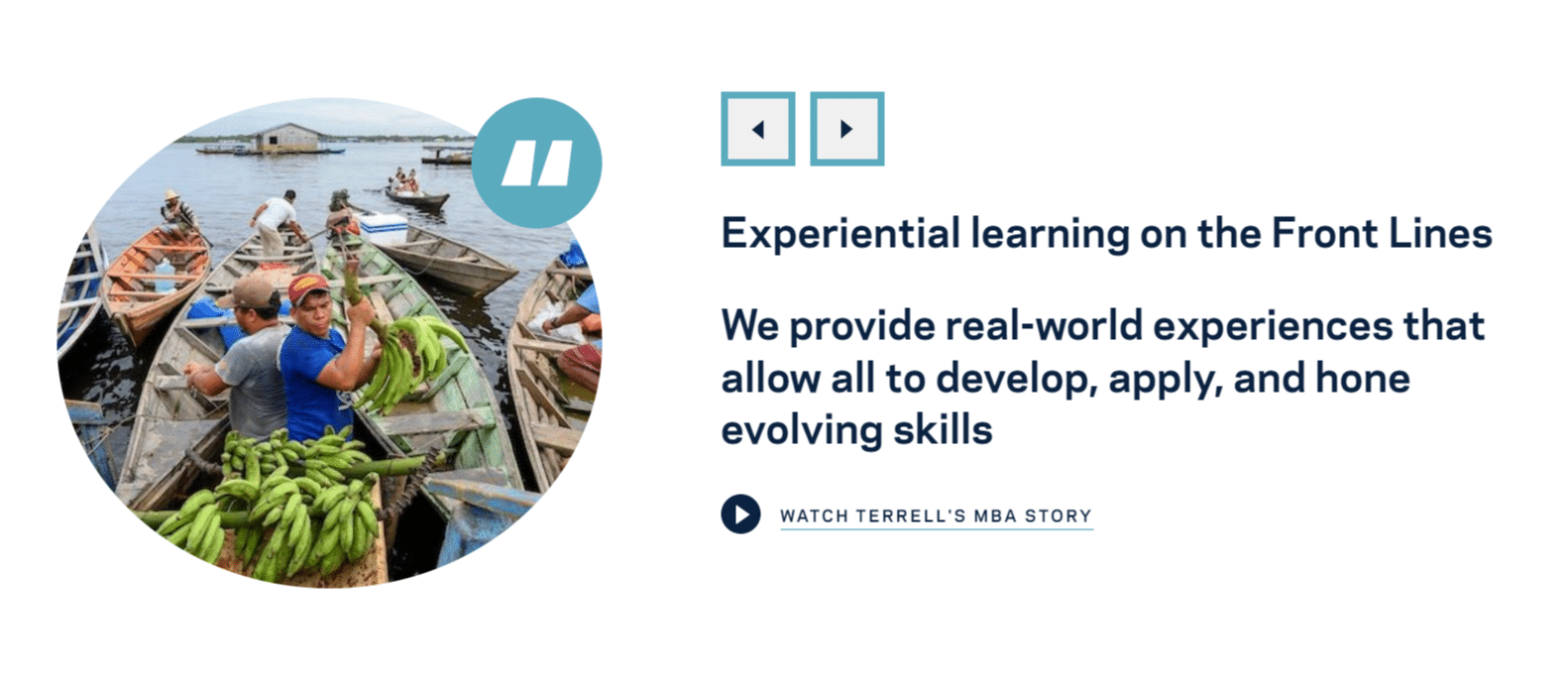Small College, Big Impact: Leveraging AI for Personalized Recruitment
Learn how small colleges can use AI for personalized recruitment—delivering student-centered experiences at scale.
Marketing Strategies
At first, the idea of data driven marketing might sound cold or robotic.
It might even sound like you’re taking the art or higher purpose out of higher ed marketing.
In other words, some might think that data driven marketing is motivated only by raw numbers, not mission or values.
If this is the case, data driven marketing would produce high volumes of applications as it makes your marketing campaigns and messaging more efficient…
…but most of these applicants wouldn’t be qualified candidates.
Most of them would not be a good mission-fit for your school.
As an enrollment marketer, your objective is not only to find and cultivate prospective students, you’ve got to find mission-fit students for your school.
I believe data driven marketing should be used to optimize the results of a mission-focused marketing strategy.
That’s why I’m really excited about the conversation we had on The Higher Ed Marketer podcast with Tim Bohling, Chief Marketing and Graduate Enrollment Officer at University of Notre Dame – Mendoza College of Business.
In this episode, Tim talks with us about how an authentic brand narrative, paired with data driven marketing, will increase your chances of connecting with your mission-fit prospective students.
Tim is the second guest we’ve had on who has won the American Marketing Association’s Higher Ed Marketer of the Year Award.
Here, he shares with us some amazing insights into his Smarter Marketing and Recruitment Playbook.
Over the course of a 25-year career outside of higher ed, Tim has developed what he calls the Smarter Marketing Playbook.
It’s his framework for working with clients from a wide variety of industries, but coming to Notre Dame Mendoza College of Business, he discovered that it works very well in higher ed too.
After spending 25 years in industry, always having one foot planted in academia, I decided to put two feet firmly in academia. Here, I had the opportunity to test, refine, build, and deploy the Smarter Marketing and Recruitment Playbook in Higher Education.
The playbook is grounded on a couple of key tenants. [The primary one is] “Know thy customer very deeply from a data driven perspective.” Those key tenants work very effectively in the industry or commercial space, [but they] also work in higher education.
[When we understand deeply] who the prospective student is, we then ensure that we deliver a meaningfully unique and distinct value proposition.
While Tim might have had his doubts, his playbook incorporates many of the same principles we’ve seen work time and time again in higher ed marketing.
We always begin with identifying our personas.
Then, to get to know them deeply, we seek to understand what questions they are asking.
What Tim brings to the conversation here is an emphasis on using data to understand our marketing personas, rather than relying on what we think we know about them.
That really is the essence of data driven marketing.

source: https://mendoza.nd.edu/
Tim unpacked more of how data driven marketing works to help us understand our marketing personas and respond to their behaviors.
The data driven orientation from a digital-first model perspective enables us to understand what works and doesn’t work here at Notre Dame Mendoza College of Business.
From a messaging standpoint across the digital ecosystem, everything is instrumented. Every single touch point is instrumented and interconnected across an integrated marketing communication plan and spins off intelligence. So, the three I’s, if you will.
With this notion of instrumented, interconnected, and intelligent, we can in real-time understand what messages are being completely ignored and what messages are being engaged with. [Then,] we double down on what works and we change or stop what doesn’t.
Often what I find across many industries is what I call a “set and forget strategy.” [This is when you] build an incredible strategy, put it to market, and wait and see. Surprisingly, it may not work!
[By contrast,] what we do is what we call “sense and respond.” Every day, we are measuring the degree of engagement with all of our messages.
When Tim and his team “sense” their target audience may not engage well with a certain message, they tweak it or scrap it all together.
Data driven marketing doesn’t mean that you’re using data to determine your mission, values, and messaging. It means you’re using behavioral data to understand your audience well.
Understanding your audience well is about knowing the truth about them, not what you think you know about them.
[Data driven marketing] is very much a collaborative, transparent process. Let me share with you the dashboard that I have on my computer that I look at every day.
It is the same dashboard that’s on the Dean’s computer as well. In addition to him, of course, there are the academic program directors, marketers, admissions, and so forth [who all have access to the data dashboard].
I refer to the dashboard as the single source of the truth.
Everybody’s opinions are welcomed. Everyone’s entitled to their opinion, I welcome it all…
But they are not entitled to their own set of data. We have one single source of the truth – a real time dashboard.
This has been great because it drives tremendous transparency, accountability, and teamwork.
Opinions, insights, and even hunches are important to the work we do.
But at the same time, we as marketers have to understand that these are all objective.
Data driven marketing doesn’t eliminate the need for analysis, creativity, or even educated guesswork.
It simply forces everyone to use one source of truth in their analysis.
When we all start at the same touchpoint, we can then make better decisions together across all departments.
Like all of our blog post reviews of The Higher Ed Marketer podcasts, there’s so much more to learn in the podcasts themselves.
Later in our interview, Tim explains more how they use social media tools to create community among students at the top of the funnel.
Listen to our interview with Tim Bohling to get even more insights into:
Then you’ve got to know how to write for the web. That’s why we want to send you our popular ebook: Writing for the Web: 7 Secrets to Content Marketing Success for Education Marketers!
With this helpful resource, you’ll learn how to:
In short, you’ll be able to write the copy that makes your digital marketing strategy work for you. Download your copy today!
Featured image via mendoza.nd.edu
Subscribe to The Higher Ed Marketer podcast today!